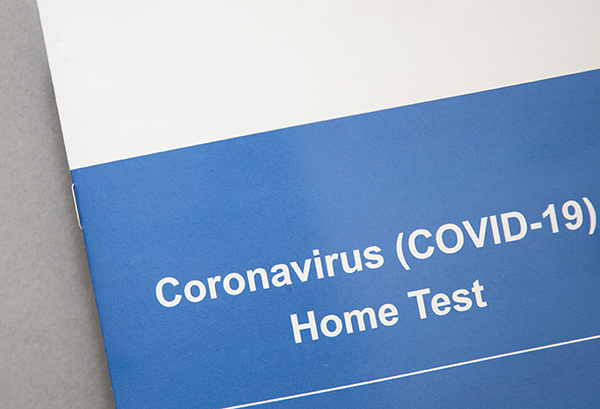New EUA advances patients’ autonomy in deciding to seek a COVID-19 test, but may impact the role of clinical laboratories
Since the early days of the COVID-19 pandemic, it has been the goal of COVID-19 test developers to offer easily accessible testing that could be performed in the home environment. There are many ways that this goal has been realized since the pandemic has started. Mobile or at-home COVID-19 testing done by clinical laboratory professionals initially emerged as a potential solution. (See Northwell Health Labs Uses Mobile Phlebotomy App to Better Serve Patients, Increase Test Volume and Revenue During COVID-19 Outbreak.) As testing technology rapidly developed, a variety of emergency use authorizations (EUAs) were soon issued to permit at-home specimen collection.
More recently, advances in at-home testing included the issuance of an EUA for the first fully at-home COVID-19 diagnostic test. (See At-Home COVID-19 Testing Finally Arrives: Laboratory Expert Weighs in on the Implications for Clinical Laboratories.) This development made way for the first COVID-19 test to be performed without needing a CLIA-certified clinical laboratory. The test from Lucira Health, which requires a prescription, is expected to impact the COVID-19 testing market when it becomes nationally available in spring 2021.
Now, Another Regulatory Event May Significantly Impact COVID-19 Test Volumes
Now, a new regulatory event moves COVID-19 testing even further away from clinical laboratories and makes at-home COVID-19 testing easier for consumers. On Dec. 9, 2020, the US Food and Drug Administration (FDA) issued an EUA for LabCorp’s Pixel COVID-19 Test Home Collection Kit, allowing this collection kit to be sold direct-to-consumer (DTC)—without requiring a prescription. This kit consists of a nasal swab that can be collected at home and sent to LabCorp for PCR analysis. The only restriction on this kit is that it must only be used by those who are 18 years or older.

“With the first over-the-counter at-home collection kit ever authorized by the FDA for COVID-19, we are empowering people to learn about their health and make confident decisions,” Brian Caveney, MD, Chief Medical Officer and President of LabCorp Diagnostics said in a recent statement. “With this authorization, we can help more people get tested, reduce the spread of the virus and improve the health of our communities.”
“While many home collection kits can be prescribed with a simple online questionnaire, this newly authorized direct-to-consumer collection kit removes that step from the process,” says Jeff Shuren, MD, JD, Director of the FDA’s Center for Devices and Radiological Health, “allowing anyone to collect their sample and send it to the lab for processing.”
Implications of First Nonprescription DTC COVID-19 Test
While the availability of a nonprescription, at-home COVID-19 test collection kit will certainly increase the ease with which testing can be obtained, this new EUA seems to benefit LabCorp exclusively. This has the potential to lead to less use of other at-home collection kits and shift the at-home collection COVID-19 testing market away from most clinical laboratories and toward LabCorp.
The FDA’s recent decision to focus on increasing COVID-19 testing and accessibility may be part of a broader trend. If the existing individual authorization for fully at-home testing and nonprescription testing were to be combined into a single test, then patients would be able to perform their own tests completely free of any contact with the medical profession. While this would increase the accessibility of COVID-19 for the public, it could have implications both for the follow-up care that patients would be likely to seek and for the role of clinical laboratories in the COVID-19 pandemic.

—By Caleb Williams, Editor, COVID-19 STAT






